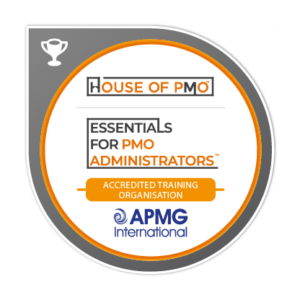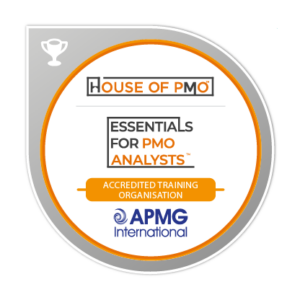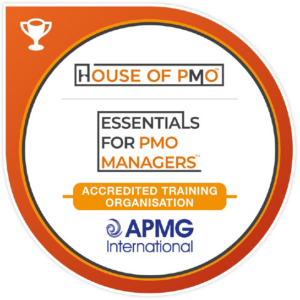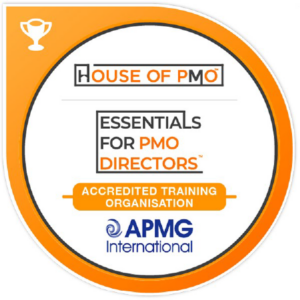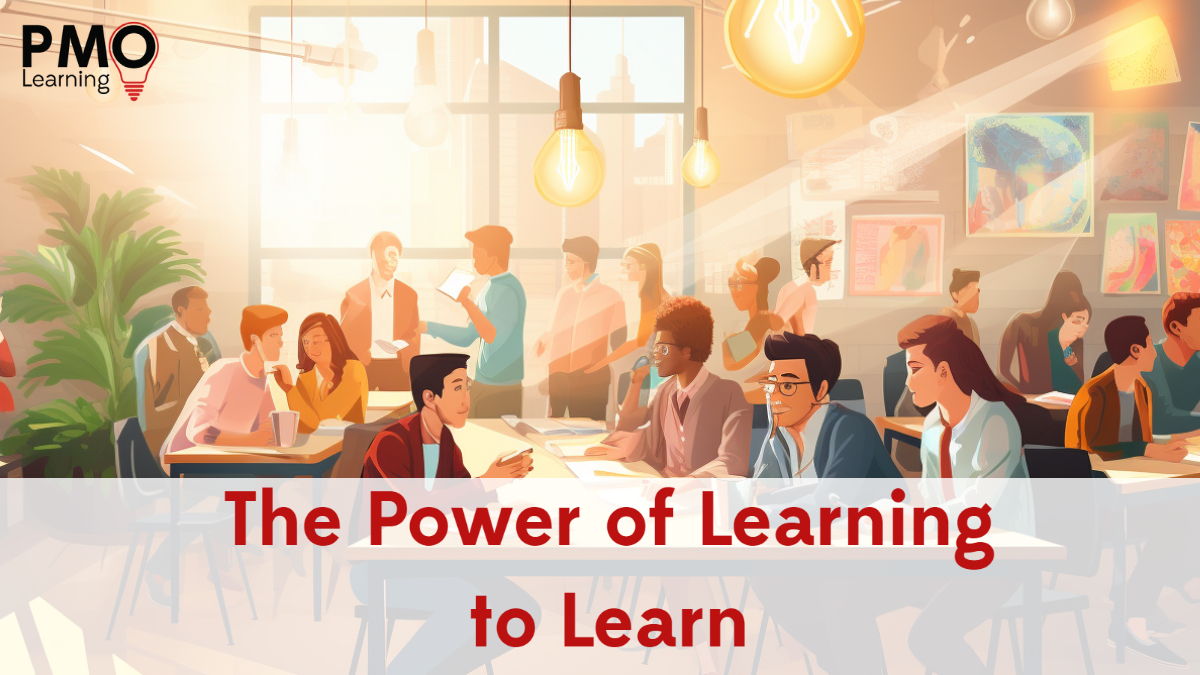
What is learning to learn?
We discuss the term ‘learn’ as a skill in the Essentials courses, but what does this mean? The definition of ‘learn’ taken from the PMO Competency Framework is ‘the ability to gain knowledge by study, instruction, or experience’.
The world is constantly changing at a fast pace, so it’s important to keep learning and improving your skills. Employers are always looking for people who are committed to learning new things to help their role and the business. Learning new skills and knowledge can also help your personal life and introduce new interests and hobbies.
Learning to learn is the ability to gain new knowledge and skills effectively. There are various aspects to learning to learn including learning styles, strategies, and being motivated and committed.
What are the different learning styles?
Knowing what learning style works best for you to take in and retain the information or skill effectively is important.
The common learning styles are.
- Visual Learners: Visual learners prefer to process information through visual aids such as charts, graphs, diagrams, and images. They learn best by seeing and observing. These learners often benefit from presentations, videos, and written materials with visual elements.
- Auditory Learners: Auditory learners learn best through hearing and listening. They grasp information effectively through spoken words, discussions, and lectures. They tend to remember information presented in the form of audio and may benefit from participating in group discussions or listening to recordings.
- Kinaesthetic Learners: Also known as tactile learners, kinaesthetic learners learn through hands-on experiences and physical activities. They prefer to engage in practical tasks, role-playing, or simulations to understand and internalize concepts better.
- Reading/Writing Learners: These learners excel when information is presented through text. They enjoy reading and writing and often prefer taking notes or creating written summaries to reinforce their understanding of the subject matter.
- Social Learners: Social learners thrive in group settings and collaborative environments. They learn best through interactions with others, such as group discussions, team projects, and peer-to-peer learning.
- Solitary Learners: In contrast to social learners, solitary learners prefer to study and work alone. They are self-motivated and prefer to process information in a quiet and independent setting. They may benefit from self-paced learning materials and reflective activities.
How do our training courses cater to these learning styles?
 Our virtual training courses incorporate various aspects to cater to everyone’s learning styles. We provide course slides with information, graphs, and images to provide all the necessary content and aid visual learners. Our trainer also goes into further detail by discussing examples and anecdotes to give further context and support auditory learners. We also provide a hard copy delegate workbook which contains the course slides as well as room for notetaking for those who are reading and writing learners. In addition to this, we use breakout rooms with group activities to allow social learners to discuss the content, collaborate and provide individual thoughts and experiences to others.
Our virtual training courses incorporate various aspects to cater to everyone’s learning styles. We provide course slides with information, graphs, and images to provide all the necessary content and aid visual learners. Our trainer also goes into further detail by discussing examples and anecdotes to give further context and support auditory learners. We also provide a hard copy delegate workbook which contains the course slides as well as room for notetaking for those who are reading and writing learners. In addition to this, we use breakout rooms with group activities to allow social learners to discuss the content, collaborate and provide individual thoughts and experiences to others.
What are the day-to-day learning opportunities for those who work in PMO?
There are many learning opportunities for those working in PMOs.
- Network – ask colleagues and other PMO practitioners about their experiences, subjects, and skills they have gained over the years. Connect in person or on LinkedIn.
- Reading blogs and publications – this is a great way to stay up to date with current trends and topics in the PMO world. Click here to see our blog posts.
- Webinars – virtual webinars are popular on LinkedIn and company pages to discuss various topics and ideas. Click here to see our recent and upcoming webinars.
- Attending conferences and events – this is a great way to network, listen to keynote speakers, and see what new products and services are available. The PMO conference in Edinburgh is coming up in November, click here to read more.
- PMO certifications – completing PMO certifications such as the Essentials suite/ P3O® or MoP® can demonstrate to employers that you have the in-depth knowledge and skills to perform your PMO role.
- Specialist training courses – these are a great way of focusing on certain key areas of your PMO such as Benefits Management or Lean-Agile.
In short, there are many benefits to keeping learning. If you want to be successful in your career, your personal life, and your overall well-being, it is important to never stop learning.
What will you learn about next from PMO Learning? Essentials certifications, P3O® Foundation or Management of Portfolios®?
Click here to get in touch with us.
Enjoying Our Blog?
Sign up and receive all our articles (we’ll send you an update once a week!) plus special offers and events:
The MoP® courses on this page are offered by PMO Learning. MoP® is a [registered] trade mark of AXELOS Limited. MoP® is a registered trade mark of AXELOS Limited, used under permission of AXELOS Limited. All rights reserved.
The P3O® courses on this page are offered by PMO Learning. P3O® is a [registered] trade mark of AXELOS Limited. All rights reserved. P3O® is a registered trade mark of AXELOS Limited, used under permission of AXELOS Limited. The Swirl logo™ is a trade mark of AXELOS Limited, used under permission of AXELOS Limited. All rights reserved.





